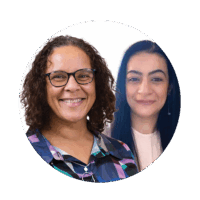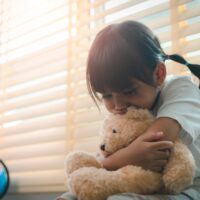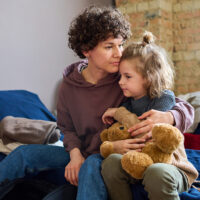Trauma
-

Beyond ACEs: When Trauma-Informed Care Misses Neurodivergent Children
Trauma-informed care often overlooks neurodivergence, leading to missed diagnoses and support, as in James’ story. Research shows trauma, neurodevelopmental conditions and adversity frequently co-occur, with “double jeopardy” when both are present. Services must move beyond silos to holistic, person-centred assessment that recognises each child’s unique “make and model.”. Blog by Professor Helen Minnis (pic) and Dr. Ruchika Gajwani.
Read more -

Supporting Children and Young People with Complex Trauma Histories: Rethinking Readiness for Treatment
Children and young people who have experienced trauma often present with a range of emotional, behavioural, and relational difficulties. There is robust evidence that trauma-focused psychological therapies are effective for PTSD in children and adolescents. Nonetheless, clinicians sometimes hesitate to offer these approaches to young people whose circumstances are complicated—for example, those with ongoing instability, high levels of distress, suicide risk, or multiple comorbidities. Some are told they are ‘not ready’, or that therapy should wait until other difficulties are managed. However, current evidence suggests that complexities are not, in themselves, a reason to delay treatment.
Read more -

The role of socio-contextual factors in child and adolescent PTSD
‘The role of socio-contextual factors in child and adolescent PTSD’ is a webinar is organised by ACAMH’s Adverse Childhood Experiences (ACEs) Special Interest Group. It is led by Professor Sarah Halligan is Professor of Child and Family Mental Health at the University of Bath.
- Event type
- ACEs SIG Monthly seminars
- Location
- LIVE STREAM
-

Families and Children in Wartime Ukraine: Prelude to an Online Course on Families in Context of War and Social Conflict Through the Lens of Attachment
For practitioners and policymakers, it is important to realise that the extraordinarily high levels of parental burnout signal serious mental health challenges ahead, even well beyond the end of the war.
Read more -

Children and Adolescents with Single and Multiple Traumas Response to PTSD Therapy: New Insights from a Major Meta-Analysis
A 2023 meta-analysis led by Hoppen and colleagues examined whether children and adolescents with post-traumatic stress disorder (PTSD) benefit equally from psychological interventions, regardless of whether they have experienced a single traumatic event or multiple traumas (Hoppen et al., 2023).
Read more -

Blades and Wounded Minds: exploring the links between youth mental health and knife crime
This webinar examines the complex relationship between youth mental health issues—particularly trauma and anxiety—and the rise in knife crime among young people.
- Event type
- Half day conference
- Location
- LIVE STREAM
-

Autumn Webinar programme
Don’t miss the early birds! All events are centred around evidence-based research, and our speakers are some of the leading lights in the field. ACAMH is a charity, and we receive no government funding, nor do we ask for donations.
Read more -

To Start or Not To Start: Navigating between stabilisation and memory work in cognitive therapy for PTSD
Gain confidence in deciding when to start trauma memory work with children and young people with PTSD or Complex PTSD
- Event type
- Workshop
- Location
- LIVE STREAM
-

The Amal Group – Addressing adversity, stress, trauma and the associated mental health responses of children and young people
‘The Amal Group – Addressing adversity, stress, trauma and the associated mental health responses of children and young people’ is a webinar is organised by ACAMH’s Adverse Childhood Experiences (ACEs) Special Interest Group.
- Event type
- ACEs SIG Monthly seminars
- Location
- LIVE STREAM
-

Shore: a safe place for young people worried about sexual behaviour
Children and young people engaging in harmful sexual behaviour is a national public health issue, affecting thousands of young people across the UK every year. Despite this, there are few services available to support young people once harm has taken place and even fewer for young people concerned about their own or someone else’s sexual thoughts, feelings or behaviour.
- Event type
- Talk with Q&A
- Location
- LIVE STREAM